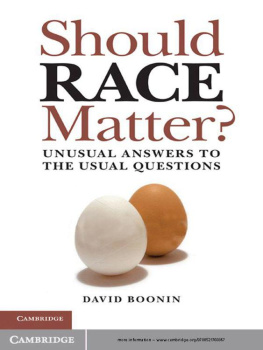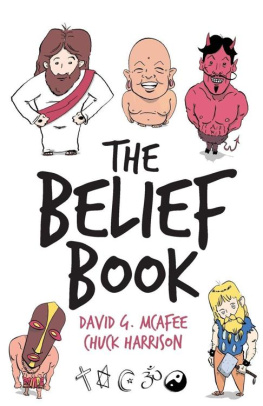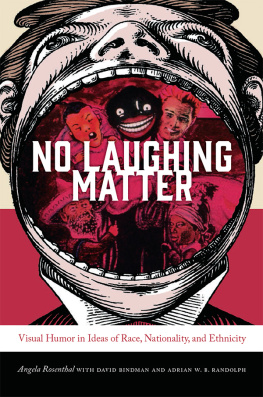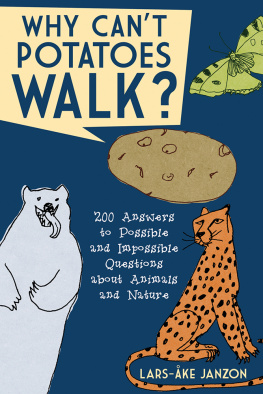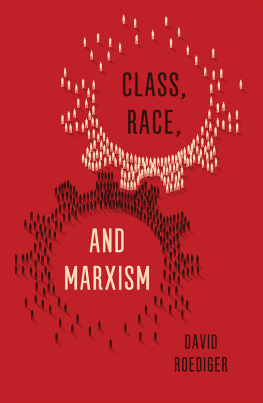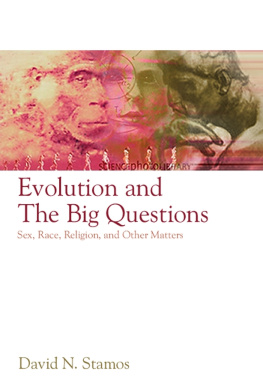Should Race Matter?
Unusual Answers to the Usual Questions
In this book, philosopher David Boonin attempts to answer the moral questions raised by five important and widely contested racial practices: slave reparations, affirmative action, hate speech restrictions, hate crime laws, and racial profiling. Arguing from premises that virtually everyone on both sides of the debates over these issues already accepts, Boonin arrives at an unusual and unorthodox set of conclusions, one that is neither liberal nor conservative, color conscious nor color blind. Defended with the rigor that has characterized his previous work but written in a more widely accessible style, this provocative and important new book is sure to spark controversy and should be of interest to philosophers, legal theorists, and anyone interested in trying to resolve the debate over these important and divisive issues.
David Boonin is a Professor of Philosophy at the University of Colorado. He is the author of the book Thomas Hobbes and the Science of Moral Virtue (1994) and the prize-winning books A Defense of Abortion (2002) and The Problem of Punishment (2008), all of which were published by Cambridge. He is also the author of a number of articles on issues in applied ethics and the co-editor of the popular applied ethics textbook Whats Wrong? (2009).
Should Race Matter?
Unusual Answers to the Usual Questions
David Boonin
University of Colorado
CAMBRIDGE UNIVERSITY PRESS
Cambridge, New York, Melbourne, Madrid, Cape Town, Singapore, So Paulo, Delhi, Tokyo, Mexico City
Cambridge University Press
32 Avenue of the Americas, New York , NY 10013-2473, USA
www.cambridge.org
Information on this title: www.cambridge.org/9780521149808
David Boonin 2011
This publication is in copyright. Subject to statutory exception and to the provisions of relevant collective licensing agreements, no reproduction of any part may take place without the written permission of Cambridge University Press.
First published 2011
Printed in the United States of America
A catalog record for this publication is available from the British Library.
Library of Congress Cataloging in Publication data
Boonin, David,
Should race matter? : unusual answers to the usual questions/David Boonin.
p. cm.
Includes bibliographical references and index.
ISBN 978-0-521-76086-7 (hardback) ISBN 978-0-521-14980-8 (paperback)
1. Race relations. 2. Slavery. 3. Reparations for historical injustices.
4. Affirmative action programs. 5. Hate crimes. I. Title.
HT1521.B634 2011
305.8dc22 2011003648
ISBN 978-0-521-76086-7 Hardback
ISBN 978-0-521-14980-8 Paperback
Cambridge University Press has no responsibility for the persistence or accuracy of URLs for external or third-party Internet Web sites referred to in this publication and does not guarantee that any content on such Web sites is, or will remain, accurate or appropriate.
For my parents, my wife, and my children
Contents
Preface
Several years ago, a student suggested that our department introduce a course focusing on applied ethics issues that involve race. This struck me as a good idea. I wondered how much work would be involved if I wanted to put such a course together myself, and so I started to make a list of all of the issues I had covered, in well over a decade of teaching a variety of applied ethics courses, that were strongly connected to race. It didnt take long for me to realize that there werent any. Thats when I decided to write this book.
I decided to write this book because I wanted to be able to teach a course on applied ethics and race and because I knew that committing myself to a new book project on the subject would motivate me to do the research necessary to get such a course up and running. I began by looking into the popular and the academic literature on a number of issues that my teaching had previously ignored and ended up deciding to focus on five controversies that struck me as particularly important: the debates over slave reparations, affirmative action, hate speech restrictions, hate crime laws, and racial profiling. With the help of a teaching reduction that was funded by a course development grant from the Institute for Ethical and Civic Engagement at the University of Colorado, I then began to put together a series of documents that would serve both as tentative lecture notes and as preliminary chapter drafts. Although the grant was awarded to help me develop the course and not the book, I would like to express my gratitude here for the support that the grant indirectly provided as my various ideas for the book began to take shape through the process of creating the course.
I set out to write a book that, like the course that I wanted to teach, would consider nonacademic as well as academic writings. And I hoped that, as a result, it would be of interest to both nonacademic and academic readers. Because of this, I made an attempt to solicit feedback from members of both potential audiences as I began to work on the manuscript itself. Of the nonacademic readers who gave me feedback, I would especially like to thank Irving Kagan, Dan Urist, Andy Strom, and Kurt Nordback for their detailed and often challenging comments, and Robert Astle, for helping me figure out the best way to present and find a readership for the final product. Of the academic philosophers who commented on parts or all of the manuscript, I would like to thank Mike Huemer, Dan Korman, Hugh LaFollette, Graeme Forbes, Brad Monton, Chris Heathwood, and, especially, Eric Chwang, Michael Levin, Stephen Kershnar, and Lionel McPherson. I learned a great deal from their responses and have done my best to address them here.
My greatest debt, however, is to two sets of students whose critical feedback was indispensible in writing and revising this book. The first is the set of undergraduates who took the course once I began to offer it. Their detailed questions forced me to make countless clarifications in the way that I presented the material, and their enthusiastic contributions to class discussion gave me an opportunity to test out many of the arguments and objections that eventually made their way into the manuscript.
The second is the reading group that a number of graduate students participated in as the project was nearing its end. These students all dedicated a good part of one summer to reading the entire manuscript in detail and to meeting weekly to discuss it and to provide me with detailed questions, comments, and concerns. For all the help and encouragement that this provided, I would like to thank Cory Aragon and Barrett Emerick for organizing the group and all of their fellow participants: Michaela McSweeney, Duncan Purves, Jennifer Kling, Scott Wisor, Emma Kobil, Amber Arnold, Jason Hanna, and Amandine Catala, who also served as a research assistant on the project.
Finally, I would like to thank my family for their love and support throughout my work on this project and in everything else. This book is for them.
Thinking in Black and White An Introduction to the Moral Questions that Americas Past Raises about Its Present
Two facts about black and white people in the United States give rise to a number of important moral questions. This book attempts to answer five of them. The two facts are that for much of our nations history, black people as a group were treated worse than were white people as a group and that by many uncontroversial measures of human well-being, black Americans on average arent doing as well today as white Americans are doing. The five moral questions that arise from these facts, and that constitute the subject of this book, concern the moral status of slave reparations, affirmative action, hate speech restrictions, hate crime laws, and racial profiling.


